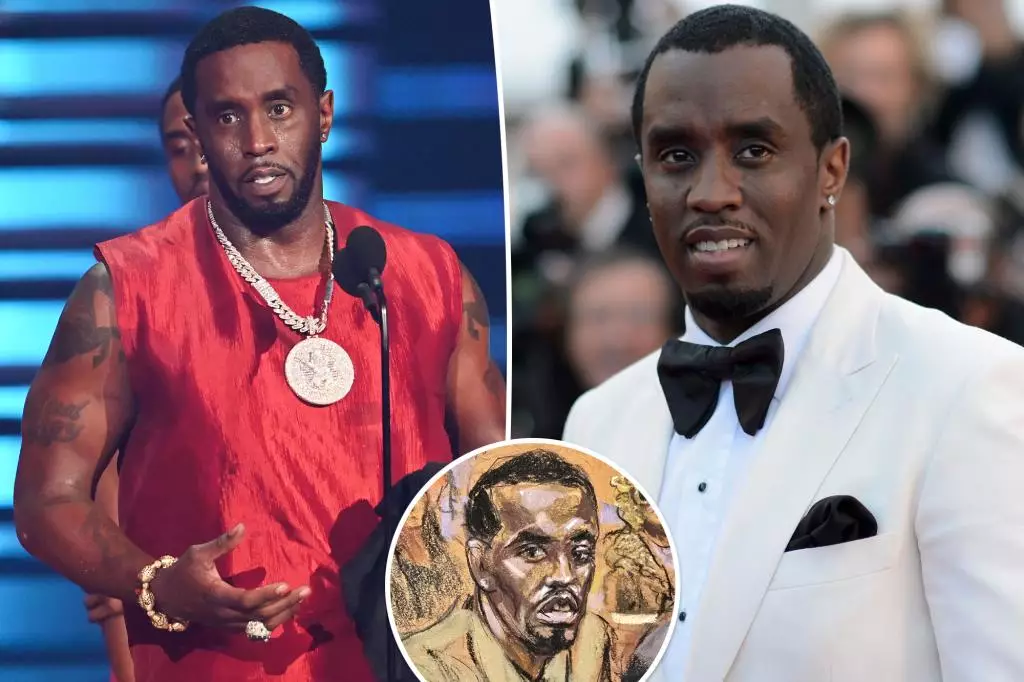In recent developments from the legal world, a significant ruling has emerged concerning a woman who accused Sean “Diddy” Combs of sexual assault two decades ago. This case, echoing numerous high-profile cases of sexual misconduct in the entertainment industry, raises complex issues surrounding anonymity, justice, and the implications of celebrity culture on legal proceedings.
In a ruling from Judge Mary Kay Vyskocil in the Southern District of New York, the woman, referred to as Jane Doe in her lawsuit, has been mandated to reveal her identity or risk her case being dismissed. This ruling underscores a fundamental tension in legal practices regarding anonymity and the public nature of lawsuits involving public figures. While Vyskocil acknowledged the inherent risk to Doe’s privacy, particularly given the sensitive nature of her allegations, she ultimately concluded that the serious nature of the claims requires transparency. The judge’s opinion articulated that Doe’s decision to pursue legal action against a well-known public figure demands a certain level of accountability, suggesting that anonymity may not hold under such circumstances.
This controversial ruling draws attention to broader societal debates regarding the rights of individuals to keep their identities hidden when making serious accusations. While the potential emotional and reputational toll on a victim must be considered, Vyskocil’s rationale emphasizes that when an allegorist makes claims against a celebrity—especially one that involves severe allegations—the expectation for their identity to be public may outweigh individual privacy concerns.
The allegations described by Doe are alarming. She claims that during a post-party encounter in 2004, she and a friend were allegedly locked in a hotel room with Combs, where he threatened their lives if they did not acquiesce to his sexual demands. Such accusations, if substantiated, not only reveal a potential criminal act but also paint a grim portrait of power dynamics that often play out behind closed doors in celebrity culture. This echoes larger patterns of abuse that have come to light in recent years across the industry, further complicating the dialogue around consent, coercion, and accountability.
The responses from Combs’ representatives introduce an additional layer of complexity. Denying the allegations, they assert that the truth will emerge in court, positioning the narrative in a way that suggests a battle between credibility and reputation. Statements like these reflect the ongoing struggle many public figures face when confronted with serious accusations: the innate human desire to protect one’s identity while simultaneously fighting back against potentially damaging claims.
Combs is no stranger to legal scrutiny; he stands accused of multiple incidents of sexual misconduct, some dating back several decades. His legal team claims that the filings are erroneous and an attempt to tarnish his reputation, suggesting that these lawsuits may be a symptom of a broader media frenzy rather than a reflection of substantiated wrongdoing. The stakes are high not just for those who accuse but for Combs as well, as the legal proceedings unfold against a backdrop of societal reckoning with sexual violence.
Additionally, the recent lawsuit from Combs’ ex-partner, Cassie Ventura, which claimed rape and physical abuse, exemplifies the growing trend of individuals, particularly women, feeling empowered to come forward with their experiences. Even though their settlement was reached swiftly, the lingering implications of such cases reach beyond the individuals involved into wider societal perceptions of abuse and accountability.
As Combs’s trial is set for May 5, 2025, the same date as the Met Gala, the potential for public scrutiny looms large. The intersection of his celebrity status with these serious allegations creates a spectacle ripe for media attention. Through this lens, the case transcends the individual players involved, serving as a case study of the broader cultural movements surrounding consent, accountability, and the legal system’s handling of such allegations.
The requirement for Doe to reveal her identity could deter other potential victims from coming forward, showcasing the double-edged sword of celebrity culture. Public interest in individual cases often overshadows the personal trauma endured by victims, highlighting a system that can sometimes prioritize spectacle over justice. The pursuit of truth in the court of law is critical, yet it must be balanced with a humane understanding of the individuals behind the allegations. The unfolding events will not only test the legal boundaries of accountability but also reflect society’s evolving stance on these pressing issues.

